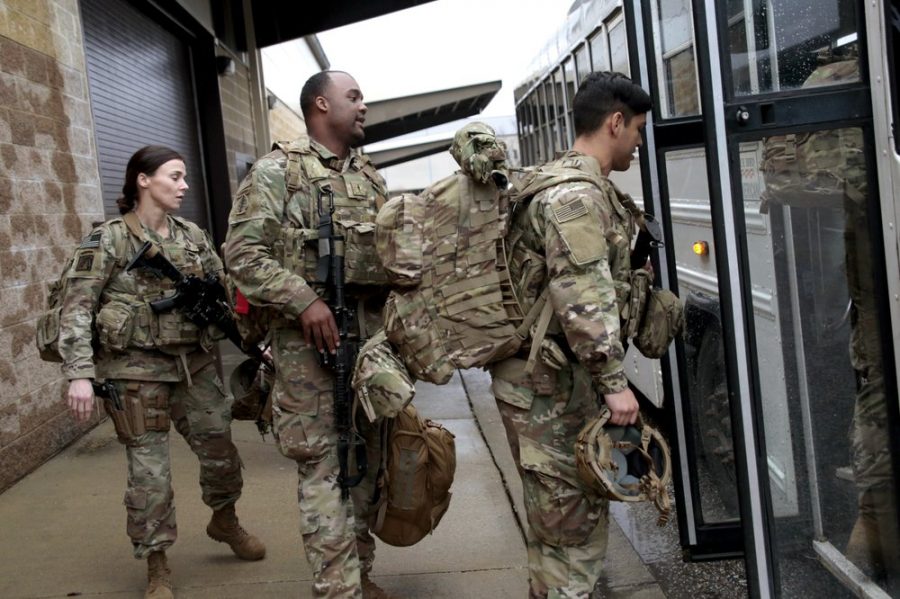How the conflict between US and Iran is affecting military families
U.S. Army soldiers with their gear board an awaiting bus Saturday, Jan. 4, 2020 at Fort Bragg, N.C., as troops from the 82nd Airborne are deployed to the Middle East as reinforcements in the volatile aftermath of the killing of Iranian Gen. Qassem Soleimani. (AP Photo/Chris Seward)
January 16, 2020
The last few weeks have been full of concern over possible war in Iran. After several tense days that resulted in thousands of troops being deployed, tensions seem to have eased a bit with Iran standing down for now. Despite things calming down, the many troops deployed are still greatly affected by the situation.
According to CNN, “More than 4,000 service members are set to be deployed to the Middle East as tensions rise following the killing of an Iranian general by the United States.” Many of these troops have been deployed from Fort Bragg, North Carolina. The US Defense Department stated that these newly deployed troops will join over 50,000 troops already deployed to the area in the Middle East.
This deployment means tons of families were separated by their loved ones— some without any notice– and sent to the Middle East. Though all military members know that deployment is a very real possibility, the sudden conflict and change to family dynamics must be incredibly difficult for these families.
It is still unclear how long this military situation may last, but for the families directly impacted by deployment, the situation is far from over.









